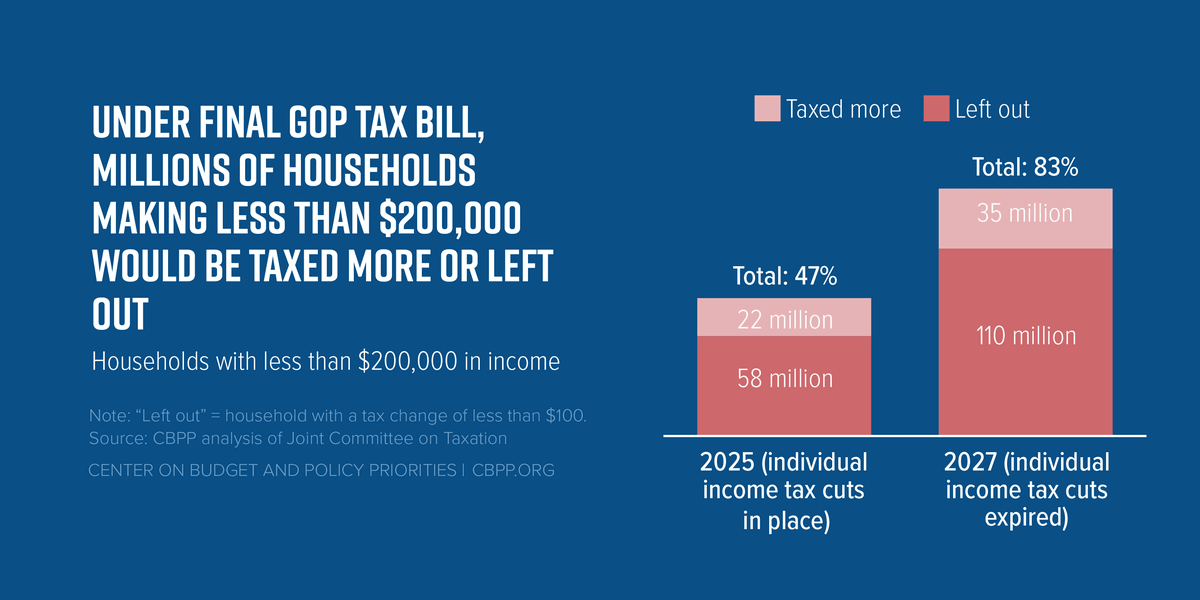Representatives To Recover $1.231 Billion In Unpaid Taxes From Oil Companies

Table of Contents
The Scale of the Unpaid Taxes and Their Impact
The $1.231 billion figure represents a substantial loss of government revenue, a significant blow to public services, and highlights a concerning level of tax evasion within the oil sector. While a precise breakdown of how much each company owes remains confidential for legal reasons, the sheer magnitude of the unpaid taxes underscores the systemic nature of the problem.
- Loss of Government Revenue: This shortfall directly impacts government budgets, potentially leading to cuts in vital public services such as healthcare, education, and infrastructure development.
- Impact on Public Services: The lack of funding resulting from unpaid oil company taxes translates directly into reduced quality or availability of crucial public services, impacting citizens across the board.
- Environmental Concerns: In some cases, tax evasion by oil companies has also been linked to a reduced capacity for environmental protection and remediation efforts, as funding for these initiatives often suffers when government revenue is diminished. This creates a double blow: environmental damage and a lack of funds to address the damage. The recovered funds could be vital in addressing this issue.
- Keywords: billions in unpaid taxes, tax revenue shortfall, government spending, public services funding, environmental remediation.
Methods Employed for Tax Recovery
Recovering this massive sum required a multi-pronged approach that combined thorough investigation with decisive legal action. The process involved several key steps:
- Tax Investigations: Specialized government agencies conducted extensive investigations, scrutinizing financial records, production data, and other relevant information to uncover instances of tax evasion. This involved sophisticated data analysis and collaboration between multiple departments.
- Legal Strategies: Based on the findings of the investigations, legal teams pursued the oil companies through various means, including civil lawsuits, negotiations, and settlements.
- Financial Audits: Rigorous financial audits were carried out to verify the accuracy and completeness of the oil companies’ financial statements and tax declarations. This often involved independent auditing firms.
- Settlements and Court Rulings: Some cases resulted in negotiated settlements, while others proceeded to court, with rulings ultimately ordering the payment of back taxes and penalties.
The Role of Government Representatives in Tax Recovery
Government representatives, specifically those within dedicated tax enforcement agencies, played a crucial role in this successful tax recovery.
- Government Agencies Involved: The specific agencies involved may vary depending on jurisdiction, but typically include revenue services, tax departments, and potentially environmental protection agencies, given the environmental implications.
- Roles and Responsibilities: These representatives are responsible for investigating potential tax evasion, conducting audits, building legal cases, negotiating settlements, and overseeing the collection of unpaid taxes.
- Legislation and Regulations: The process relies on existing tax laws and regulations, and the successful recovery highlights the importance of strong legal frameworks to deter tax evasion.
Impact and Future Implications of the Tax Recovery
The recovery of $1.231 billion in unpaid taxes has significant implications for government budgets, future tax compliance, and industry regulations.
- Positive Impact on Government Budgets: The recovered funds will bolster government budgets, potentially allowing for increased spending on crucial public services or debt reduction.
- Deterrent Effect: The success of this case acts as a significant deterrent to future tax evasion attempts within the oil industry.
- Changes in Tax Laws and Regulations: This case could lead to tighter regulations and stricter enforcement measures within the oil sector and possibly other industries.
- Potential for Similar Investigations: The success of these actions encourages similar investigations against other potentially non-compliant industries.
Conclusion: Securing Billions: The Success of Oil Company Tax Recovery
The successful recovery of $1.231 billion in unpaid taxes from oil companies demonstrates the importance of robust tax enforcement and compliance. The methods employed, from meticulous investigations to decisive legal action, resulted in a significant victory for government revenue and public services. This landmark case serves as a potent deterrent against future tax evasion within the oil industry and underscores the necessity of ongoing vigilance in ensuring tax compliance across all sectors. Stay informed about tax enforcement efforts and the ongoing fight against tax evasion to ensure accountability and transparency within the oil industry and beyond. The success in recovering these billions highlights the importance of continued investment in and support of effective oil company tax recovery mechanisms.

Featured Posts
-
 Wayne Gretzkys Daughter Paulina In A Mini Dress For A Playdate
May 20, 2025
Wayne Gretzkys Daughter Paulina In A Mini Dress For A Playdate
May 20, 2025 -
 Nj Transit Avoids Extended Service Disruptions After Union Deal
May 20, 2025
Nj Transit Avoids Extended Service Disruptions After Union Deal
May 20, 2025 -
 Admirals Bribery Trial A Window Into The Culture Of The U S Navy
May 20, 2025
Admirals Bribery Trial A Window Into The Culture Of The U S Navy
May 20, 2025 -
 Jalkapallo Kaellman Ja Hoskonen Jaettaevaet Puolalaisseuran
May 20, 2025
Jalkapallo Kaellman Ja Hoskonen Jaettaevaet Puolalaisseuran
May 20, 2025 -
 I Tragodia Toy Baggeli Giakoymaki Mathimata Gia Tin Koinonia Mas
May 20, 2025
I Tragodia Toy Baggeli Giakoymaki Mathimata Gia Tin Koinonia Mas
May 20, 2025
